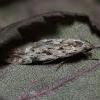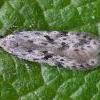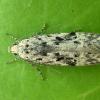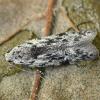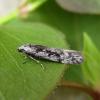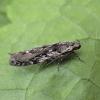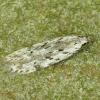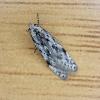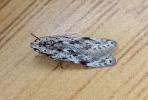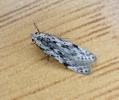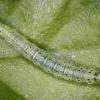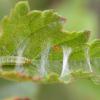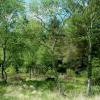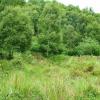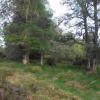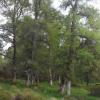35.151 Carpatolechia proximella (Hübner, 1796)
Status and Distribution
One of the more widespread Gelechiid species in the British Isles, sometimes present in good numbers and found in most localities where birch occurs. Appears not to utilise amenity planted birch in areas where naturally occuring plants are absent. Not recorded from Shetland or Isle of Man and there is only a single record from the Channel Islands, in 1984.
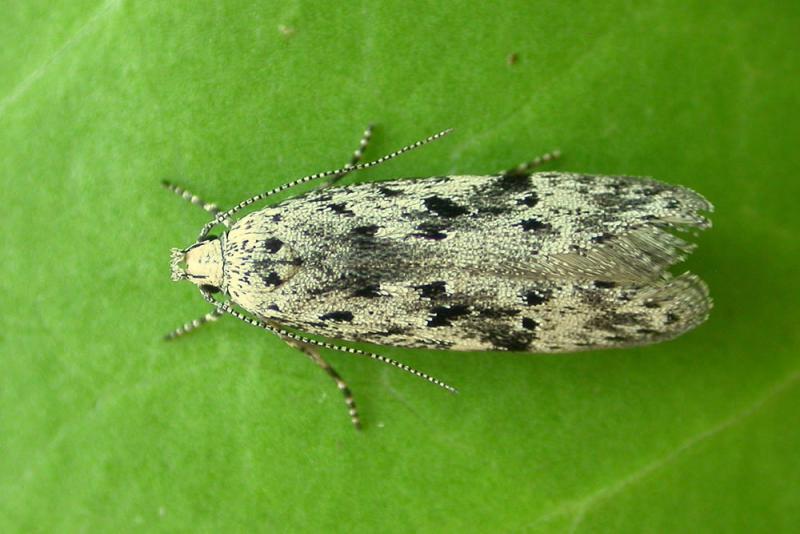
Provisional map
Foodplant and Larval Feeding Signs
Betula pubescens (downy birch), B. pendula (silver birch), see distribution map, Alnus glutinosa (alder) and Alnus cordata (italian alder).
In Europe also recorded on Alnus viridis.
Feeds within a spun, folded leaf.
Finding the Moth
Larva: feeds within an upwardly folded leaf with the silk often obvious across the join. Has been found as a larva well into October on occasions.
Adult: readily disturbed during the day from its foodplants, can be found at rest on tree trunks and later comes freely to light.
Similar Species
Carpatolechia alburnella has white labial palps with segment two clear white above and dark at the base and segment three with two dark rings near the tip; the head, thorax and tegulae (sides of the thorax) are white, areas which are mottled with brownish-grey in even the palest of C. proximella.
Carpatolechia notatella is a slightly smaller, on average, and darker moth and only the very darkest form of C. proximella could potentially cause confusion. C. proximella lacks the black spot at the base of the forewing, instead having an occasionally elongated spot at the base of the costa (leading edge).
If a more uniformly greyish but similar-sized moth is encountered, with streaky rather than spotty black marks, then it could be worth considering Teleiodes saltuum. This species feeds primarily on larch and is found in France, Holland and Belgium as well as other more distant European countries.
Single brooded from early May to mid-July occasionally lasting into August.
Earliest: 18th April 2011 (VC56), while there is an exceptionally early record on 18th March 2012 (VC11).
Latest: 2nd September 2013 (VC27); there are only a very small number of records later than the first week of August.

